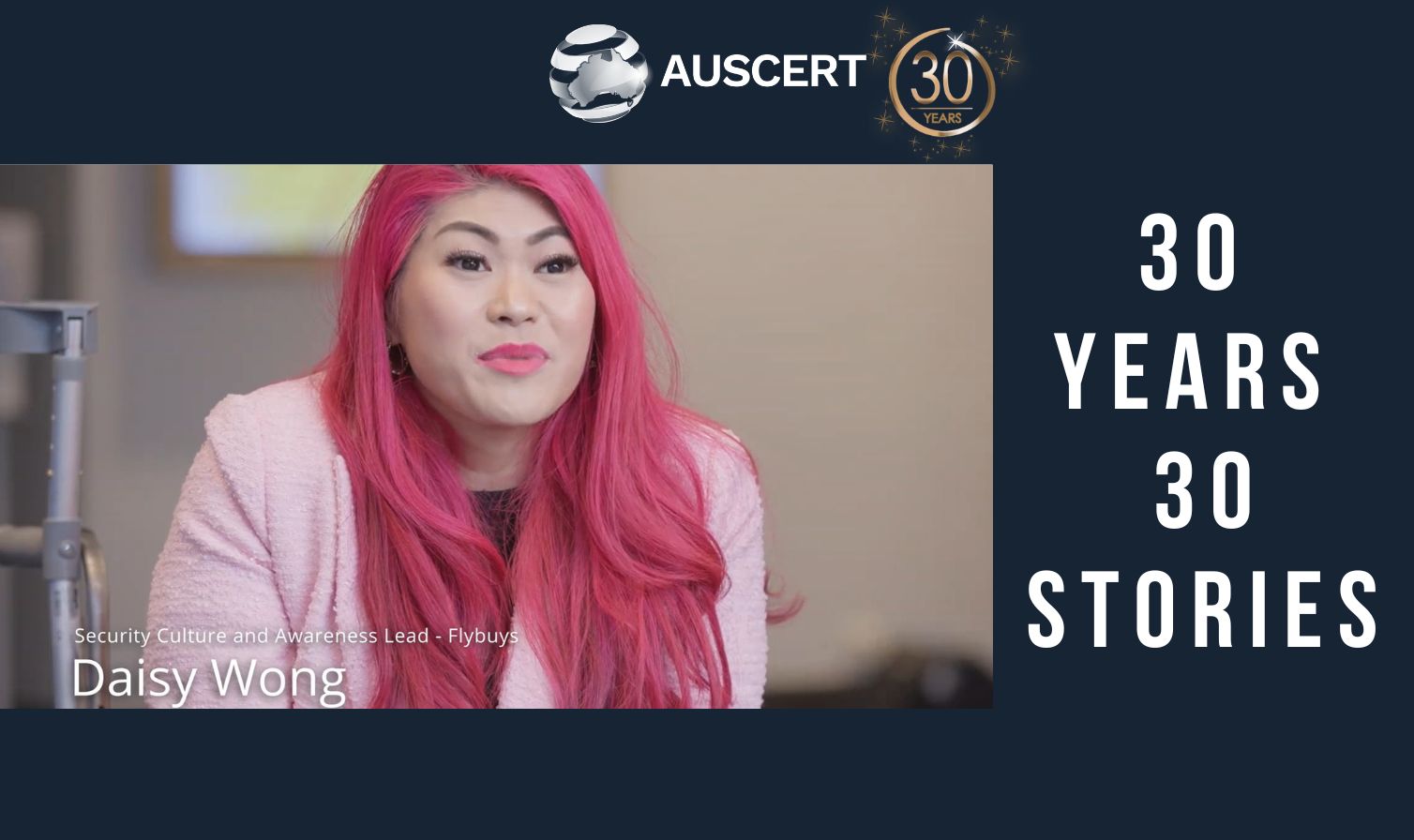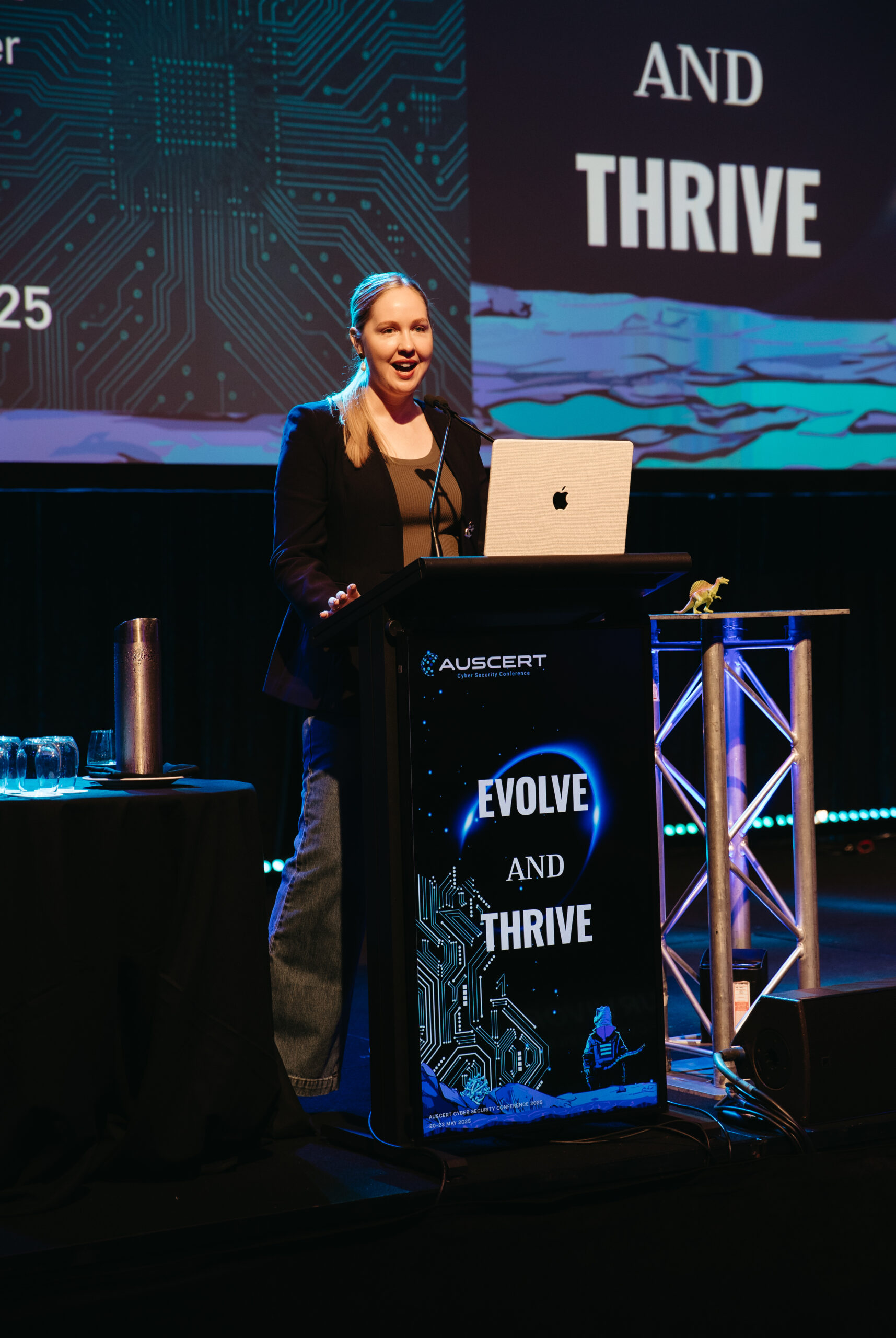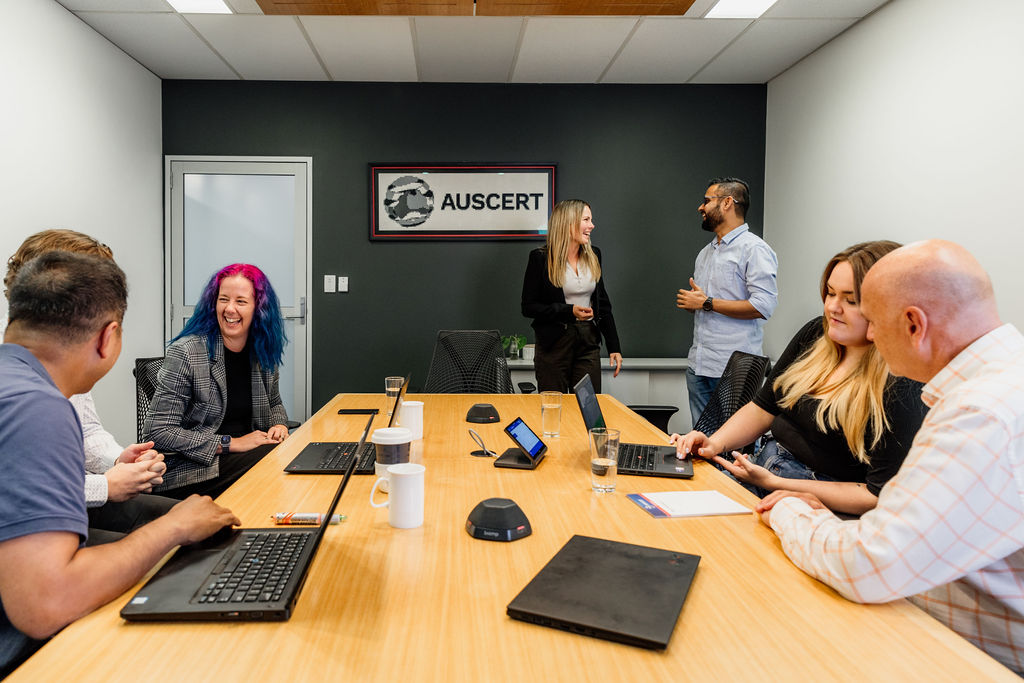19 Sep 2023
Blogs
30 Years 30 Stories
AUSCERT 30 Years 30 stories – Daisy Wong
Defining results-focused leadership, with a strong management connection, Daisy Wong is the Security Culture and Awareness Lead at Flybuys. Working with a disability, Daisy is an amazing thought leader and advocate for inclusive work environments. Daisy champions those with disabilities and shares why she appreciates AUSCERT’s inclusivity efforts.
What advice would you give an organisation looking to prioritise diversity and inclusion, when hiring and retaining talent?
For those reading, I have a physical disability which means I am in a wheelchair. Over the years, I have worked in a few organisations that weren’t prepared for me. I have arrived and found stairs, meaning I couldn’t even get into my workplace. I’ve experienced hiring managers ask inappropriate questions in interview settings such as – how do I make a cup of coffee and get back to my desk – a strange question, with nothing to do with the job.
The number one thing I would recommend for organisations wanting to improve inclusivity is to ask the candidate or the person what they need to succeed. Don’t make assumptions that they cannot do something or make assumptions that they can. Create the ability during applications for accessibility information to be very clear. Although I have a physical disability, there are all different kinds of disabilities, for example, colour blindness, or audio issues, so it’s important to consider all disabilities – not just the visible ones.
How has AUSCERT played a part in helping generate diversity and inclusion in the industry?
AUSCERT has done a lot of good things relating to diversity in the industry. Firstly, the conference is always accessible. I’ve seen two other people in wheelchairs, and I’ve never had an issue getting up on the stage when presenting.
Regarding the industry, AUSCERT is highly supportive of the Australian Women Security Network. I volunteer with this network, and they’ve always had a booth at the conference. AUSCERT also works with BDO, an inclusion technology company, showcasing how they support their initiatives.
What strategies have you found most effective in creating an inclusive workplace culture?
To create an inclusive culture for organisations, the best way is to ask the individuals and listen to their needs. Flybuys has done a great job; when I started, we had a conversation about my limitations and what I can do and can’t do. Since then, every event I’ve attended has been accessible and I don’t have to continually inform Flybuys. As an employer, you need open communication, a willingness to listen, and an ability to adapt and be flexible.
How would you recommend organisations address discrimination bias in the workplace?
Unfortunately, discrimination bias still happens, and organisations need to find ways to address them. The first thing to do is lead with empathy. Many individuals don’t understand that what they say hurts my feelings or makes me feel like I can’t ask for help next time.
From a corporate or organisation point of view, training should be provided to staff because so many people make comments unconsciously. They may not have met someone in a wheelchair before and therefore might not know how to be helpful. For example, I don’t like my wheelchair being pushed without you asking, but if you see me struggling and you want to offer help, I do appreciate it. It’s about asking the person.
How far do you think the industry has come and what do you think we can expect for the future?
This is AUSCERT’s 30th year and 22nd conference, and only my second time, but I’ve noticed many changes. I’ve been in cyber industry for eight years, and I’ve already seen a lot of change. Firstly, there are more women. However, women still only represent 17% of the whole industry, meaning we’ve got a long way to go. That said, compared to other conferences, AUSCERT has a much healthier balance. AUSCERT values the encouragement of women in the industry, which I’ve observed AUSCERT apply to their own organisation by hiring females in roles.




